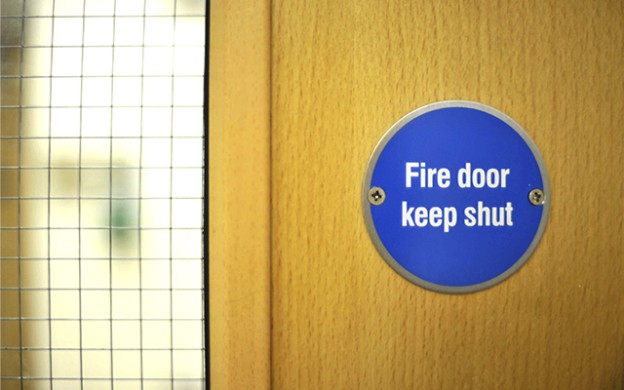
The importance of communal Health & Safety Expert insight on the new Fire Safety Act
Find out everything you need to know about health & safety in shared communal spaces.
In recent years, legislation for health & safety in apartment blocks and housing developments has tightened. Just last year, the Fire Safety Act 2021 and Fire Safety (England) Regulations 2022 were introduced as an important step towards implementing the recommendations of the Grenfell Tower Inquiry Phase 1 report.
With that in mind, we sat down with Michael Dray Tech IOSH / TMIFPO, who leads our surveying and project management team, Associated Surveying. Each year, Michael and the Team visit every property under our care, conducting regular site inspections, comprehensive Health & Safety Fire Risk Assessments, and overseeing major works.
Who better then to provide expert insight on the new Fire Safety Act and what it means for residents, as well as his take on common, preventable issues normally found in communal areas.
Could you explain the new Fire Safety Act 2021 and Fire Safety (England) Regulations 2022 in a nutshell?
MD: The Act clarifies that responsible persons (RPs) for multi-occupied residential buildings must manage and reduce the risk of fire for the structure and external walls of the building, including cladding, balconies and windows, and entrance doors to individual flats that open into common parts.
To clarify, what is a fire door, and why is it important?
MD: Fire doors are engineered pieces of fire safety. They are designed to resist the spread of fire for a period of time, normally a minimum of 30 minutes. This allows time for people to leave the building via an escape route if other routes are compromised in the event of a fire.
What are the most common issues you and the team face when conducting site inspections, and how could they be prevented?
MD: I would say the most common issues we encounter are blocked escape routes. Personal items being stored within the communal areas, like bicycles, prams, shoe / coat racks etc, all add to the narrowing of escape routes and present possible trip hazards when egressing the building. These items could also impede the emergency services accessing the building and propagate the spread of fire.
With your 23 years’ experience in the industry, what would your number one piece of health & safety advice be for residents?
MD: Keep your escape routes clear, and your smoke detectors in working order. Hopefully you’ll never need to rely on either of them!
What do you foresee for the future with health & safety legislation for apartment blocks and housing developments?
MD: I’d like to see laws introduced regarding the fitting of sprinkler systems to all new build flats which would contain and suppress a fire at origin, as well as greater controls imposed on manufacturers of external wall systems to ensure they are fire resisting.
For more information on Fire Door Safety regulations, you can read our brand-new factsheet on the subject, available here on our website!
We also have plenty of other interesting factsheets for you to read, including Health & Safety for Flats and Developments, Major Works, Residents Management Company essentials and much, much more!
